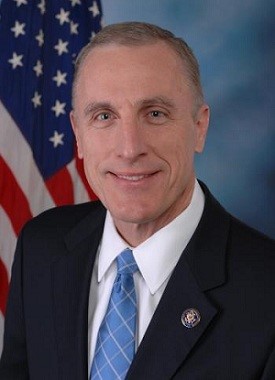
The new protests in Libya, on top of the protests in Bahrain, Yemen, and Egypt, all should serve as a major warning to the U.S. and our economy: become energy independent or pay the price with more job losses, a worsening economy, and families crushed by higher gas prices.
Since the 1973 Arab Oil embargo, the U.S. has talked about cutting its dependence on foreign oil, while little has been done. Foreign oil imports have doubled from about 30 percent in the 1970s to over 60% today. Over 1.6 billion barrels are imported from countries that are politically unstable. We spend over $1 billion per day on foreign oil – money that is not invested in U.S. jobs, infrastructure, or education. It is a recipe for disaster and worsening by the day.
Although many have called for reducing U.S. consumption of oil through mechanisms like cap-and-trade style taxes, the simple fact is that such a plan will not work. The increased costs for all energy sources will send manufacturing jobs sprinting to China. For the foreseeable future, the U.S. will need to continue using oil and natural gas for manufacturing, transportation, and chemical development.
Each day that we refuse to explore our own vast oil resources is another day where we’ve placed our economy at great risk. We are another major oil price spike away from another deep recession on top of the current one we have yet to fully recover from.
We don’t need to import oil from halfway around the globe when we have our own resources here at home. America’s offshore resources total more than 86 billion barrels of oil and 420 trillion cubic feet of natural gas, enough oil to replace imports from Saudi Arabia and Venezuela for the next 80 years and enough clean natural gas to power America’s industry for the next 63 years. Unfortunately, current policies are blocking the use of these vast domestic reserves.
There are over 30 Gulf of Mexico drilling projects just waiting to safely begin production of U.S.-owned oil but stand idle because the Interior Department has effectively revoked these rigs’ previously-approved permits. If we were to lift this “permitorium” and also begin exploration on the Outer Continental Shelf, we could cut oil imports from OPEC, our trade deficit, our national debt, and stop having to borrow from foreign nations such as China, whom we owe $900 billion.
Each day that we refuse to explore our own vast oil resources is another day where we’ve placed our economy at great risk.
Offshore oil and gas leasing rights and royalties would generate over $3 trillion in new federal revenue that could be invested in a transition to a clean energy future, the rebuilding of our antiquated infrastructure, and the restoration of our environment, all with the ultimate goal of making America energy independent.
Offshore oil and gas leasing rights and royalties would generate over $3 trillion in new federal revenue that could be invested in a transition to a clean energy future, the rebuilding of our antiquated infrastructure, and the restoration of our environment…
I will reintroduce a bipartisan energy plan, the American Conservation and Clean Energy Independence Act, which will dedicate the revenues from offshore exploration leases and royalties to slash our deficit, build clean-coal and nuclear power plants, clean up our air and water, increase renewables, and rebuild our crumbling highways and bridges. It will create 1.2 million new jobs annually and trillions in economic output without raising taxes.
This legislation would provide desperately needed funds for rebuilding our highways, bridges, locks, dams, and water and sewer systems, which need an estimated $2.2 trillion in repairs. The plan would also provide the financing for energy conservation projects of our buildings, farms, factories and households, which waste between 20 and 40 percent of energy consumed through inefficiencies.
Let’s embrace an approach to energy that includes exploration, innovation, and conservation to unleash the vast potential of America’s bountiful resources. Now is not the time to maintain the status quo on staggering unemployment, a sluggish economy, and dependence on foreign oil.
The choice is simple. We can choose to ignore the issues and shut down our largest domestic asset. Or we can move forward responsibly with priorities that will allow America to become energy independent and put millions back to work.
Tim Murphy represents the 18th District of Pennsylvania in the U.S. House of Representatives. He is the Vice Chairman of the Energy & Commerce Subcommittee on Environment and the Economy. He also serves as Co-Chairman of the House Natural Gas Caucus and Chairman of the Congressional Steel Caucus.




